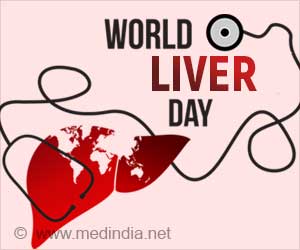Highlights
- Regular and early lifestyle changes can reduce type 2 diabetes and cardiovascular disease risk
- Early and regular educational programs can delay or prevent the onset of type 2 diabetes and cardiovascular disease
- Use of peer educators to deliver interventions could be a more pragmatic, cost-effective approach
Type 2 diabetes is highest among the Asians. About 60 percent of people were accounted for this disease, worldwide. South Asians were likely to develop the disease early and with a third of future cases were predicted to occur in those individuals who aged below 45 years.
In this study, the participants were included from Colombo, Sri Lanka. They have been screened out of 23,298 people and were identified being at an increased risk of developing type 2 diabetes and CVD. However, the participants were not yet diagnosed with the disease.
After three years, only 3539 participants were eligible for the analysis. They were chosen out of the 4672 members, who were in the age group of 5 and 40 when the study began.
Pragmatic Lifestyle Modification (P-LSM) Program
The results found showed that there were no significant differences seen in the participant's age, gender, clinical or biochemical characteristics among both the groups at the time of randomization.
Participants in the P-LSM group received one-to-one advice, assessment, and interventions once in every three months, for an average of three years and those in the C-LSM group received interventions only once every year for an average of three years.
For participants younger than 16 years, the advice and guidance were given to the child's parents in both the groups.
The program was delivered by 'peer educators,' i.e., educators who were in the age group of 18 to 40 years. Experts from University of Colombo and the MV diabetes research center, located in Chennai, India trained these educators with regular refreshing sessions.
Both the groups were monitored throughout the study period for several risk factors, which can lead to cardio-metabolic disease later in life, such as hypertension, new type 2 diabetes, renal disease and cardiovascular disease.
After three years, an 11 percent significant risk reduction among the P-LSM group was seen, where these risk factors occurred to be much lesser when compared to the control group (479 compared to 562).
New occurrences of hypertension reduced significantly with those in the P-LSM group (115 participants) versus the control group (152 participants).
The research team found further reductions in the occurrence of type 2 diabetes among both the groups (58 in the P-LSM group and 72 in the C-LSM group).
The reduction was especially seen in participants aged under 18 years and was found that the risk factors occurred were lesser in the P-LSM group when compared with the C-LSM, with 140 versus 174, a 17 percent risk reduction.
The participants in the P-LSM during the study improved their physical activity and their behavior towards increasing activity to a greater extent when compared to those in the C-LSM group.
Findings of the Study
'This study highlights that even small changes in lifestyle could lead to changes in health. We suggest that early and regular interventions can have a significant impact in delaying or preventing the onset of type 2 diabetes and other cardiovascular disease,' said lead author Dr. Janaka Karalliedde, Clinical Senior Lecturer at King's College London.
'The impact of this research could hold enormous benefits for young South Asians at risk of type 2 diabetes and cardiovascular disease. Importantly it is a low-cost intervention that could be translated into parts of the community in Sri Lanka and other low to middle-income countries. The use of peer educators to deliver interventions could be a more pragmatic, cost-effective approach than registered dietitians or counselors,' said Dr. Mahen Wijesuriya, co-lead author, the Diabetes Association of Sri Lanka.
Further research is needed to determine the longer-term impact of such lifestyle variations in a younger population, revealed the research team.
This study does not explain the mechanisms behind the reductions in risk factors. However, it establishes links that require further research. Also, these results observed in this young urban population may not apply to other groups.
Source-Medindia















